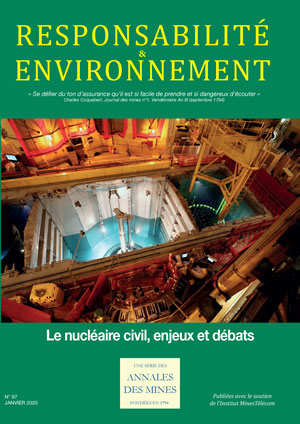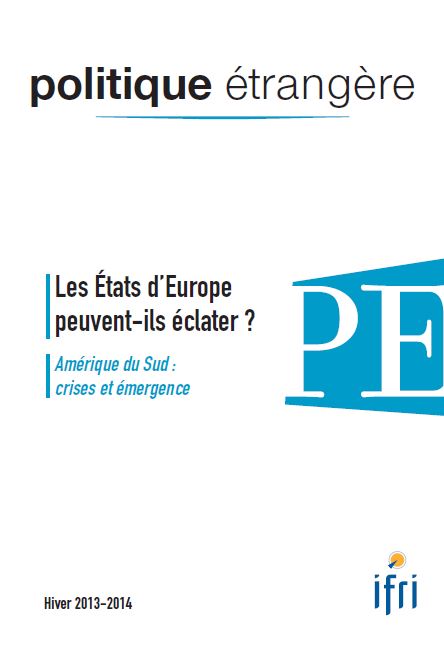
Civilian nuclear energy’s strategic dimension
French stakeholders in civilian nuclear energy are making a full diagnosis of the industry in order to cope with disappointments and lay down the conditions for relaunching programs for building reactors.
"Playing with Molecules": The Italian Approach to Libya
This paper aims to analyse the many ways in which Italy is trying to play with the many Libyan “molecules”, the different parties of a fragmented and collapsing country, and the possible implications of the strategy adopted by the Gentiloni government and its Minister of Interior, Marco Minniti, towards the country and the migratory crisis.
Sanctions on African countries: what impact?
What is the role of international NGOs regarding the sanctions process?
Greek-German Relations in Times of Crisis
This essay focuses on Greek-German relations with emphasis on the period of the SY.RIZ.A-Independent Greeks governments in 2015. In particular, it attempts to outline the political dimension of negotiations between Athens and Berlin at the EU level and explore mistakes and opportunities in the bilateral relationship.

Can The European States Split? – South America: Crises and Rise
Greece: How a State in Crisis Manages Its Migration Crisis
In the past 2 years, Greece has experienced its most severe economic crisis of the post-World War II period. While it appeared at first not to have been hit particularly hard by the global economic recession that started in 2008, the effects of the recession and the acute internal crisis of public finances became visible in late 2009.
"Hunger Riots" in Senegal: A Pointer to the Current Governance Failure
"Hunger riots", a stock phrase used to describe protests at the end of 2007 / beginning 2008 in around thirty countries world-wide, mostly African States, places different phenomena into one group. In this paper, we will focus on the case of Senegal, a country in which "Hunger riots" were numerous.
Kenyan Crisis: Interview with Hervé Maupeu
The recent violence that ensued in Kenya has taken many commentators by surprise. The appearance of stability and economic progress that the Eastern Africa country had built around a supposed successful democratic transition, just imploded. In this interview Hervé Maupeu, Head of the CREPAO and expert on electoral mobilization issues, discusses the current crisis. He details the deep political, social, economic and land divisions which have ripped Kenyan society apart.
"Playing with Molecules": The Italian Approach to Libya
This paper aims to analyse the many ways in which Italy is trying to play with the many Libyan “molecules”, the different parties of a fragmented and collapsing country, and the possible implications of the strategy adopted by the Gentiloni government and its Minister of Interior, Marco Minniti, towards the country and the migratory crisis.
Greek-German Relations in Times of Crisis
This essay focuses on Greek-German relations with emphasis on the period of the SY.RIZ.A-Independent Greeks governments in 2015. In particular, it attempts to outline the political dimension of negotiations between Athens and Berlin at the EU level and explore mistakes and opportunities in the bilateral relationship.
Sanctions on African countries: what impact?
What is the role of international NGOs regarding the sanctions process?
Support independent French research
Ifri, a foundation recognized as being of public utility, relies largely on private donors – companies and individuals – to guarantee its sustainability and intellectual independence. Through their funding, donors help maintain the Institute's position among the world's leading think tanks. By benefiting from an internationally recognized network and expertise, donors refine their understanding of geopolitical risk and its consequences on global politics and the economy. In 2024, Ifri will support more than 70 French and foreign companies and organizations.








